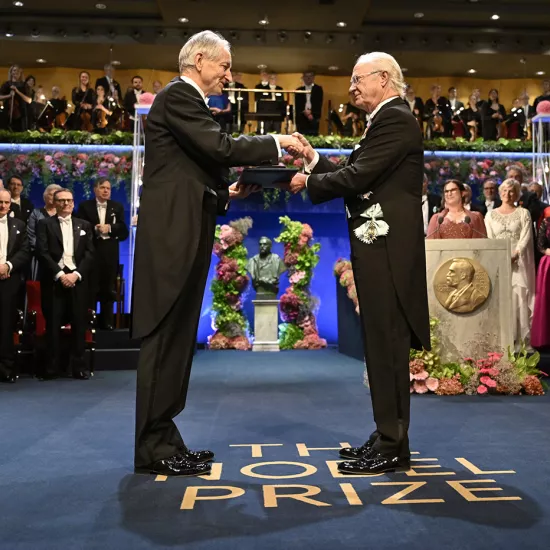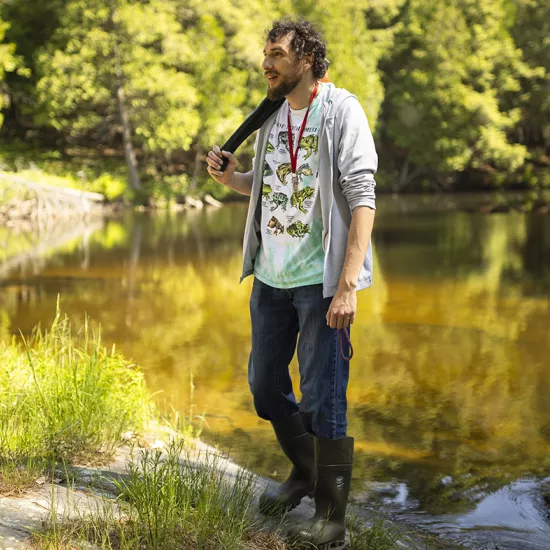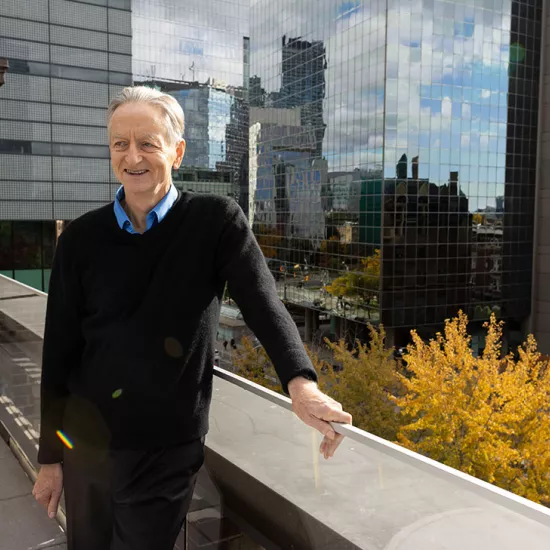Deconstructing important ideas at TEDxUofT
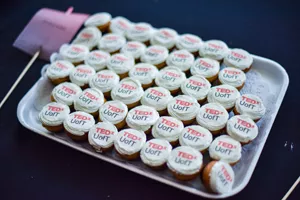
The power of nanoparticles, succeeding as a YouTuber and championing female scientists were just some of the bright ideas and exciting research projects shared at the seventh annual TEDxUofT.
The daylong event, which took place on March 10 at the St. Lawrence Centre for the Arts, featured 12 speakers associated with the University of Toronto – professors, students or graduates. Following the style of TEDx events, they delivered short, informative, engaging talks on their research or work that fit the conference’s theme: deconstructing complex concepts into their fundamental ideas.
Hosted by infrastructural engineering student and Engineers Without Borders U of T chapter president, David Boroto, the event featured a catered breakfast and lunch, a contest with giveaways of an Amazon Echo and Google Home, and musical performances by the U of T Jazz Orchestra and the student a cappella group Tunes. Beats. Awesome.
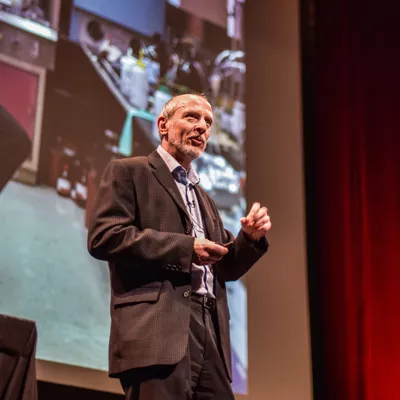
The social determinants of health affecting Indigenous death rates in Canada were reviewed by Kona Williams, Canada’s first Aboriginal forensic pathologist. She explained how systemic historic marginalization – including mandatory attendance at residential schools, forced sterilization, cultural genocide and lack of clean water on reserves – all contribute to higher mortality rates, including higher suicide rates, among Indigenous Peoples.
Aerospace engineering student and entrepreneur Jeremy Wang shared practical tips for how to build a more productive relationship between engineers and salespeople, so that both groups can be more effective and better serve their organizations. Helen Kontozopoulos, co-founder and co-director of the Computer Science Innovation Lab at U of T, addressed whether artificial intelligence will bring utopia or dystopia, and her efforts to get her students to consider the ethics of AI.
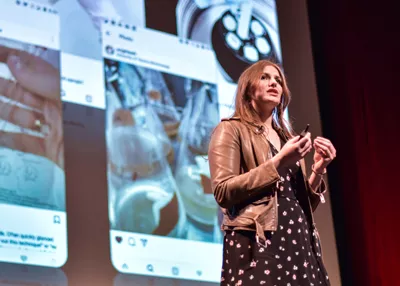
UTM PhD candidate Sasha Weiditch, who studies protein chemistry, discussed her mission to engage the public in scientific research and to advance gender equity in the STEM fields. Through her Instagram account, she communicates scientific concepts and processes in accessible terms to appeal to a general audience. She also shares the stories of female scientists and their accomplishments on her blog, PhDenomenal PhDemale.
“The future is becoming a place where we are all able to succeed,” regardless of people’s “gender or what they look like, but because of what they have to say, and what they can contribute to the understanding of this world,” Weiditch said. “We are all curious, we all have the potential to do better, so together, we can catalyze positive change.”
“We can now understand how cells are functioning, if there’s a dysfunction of some sort. We can even test therapeutic agents to determine which might work best. That’s the information a physician needs for personalized medicine,” said Krull, who is completing a three-year project funded by a $500,000 NSERC grant to investigate how nanoparticles can be used in areas such as diagnostic medicine and food science.

